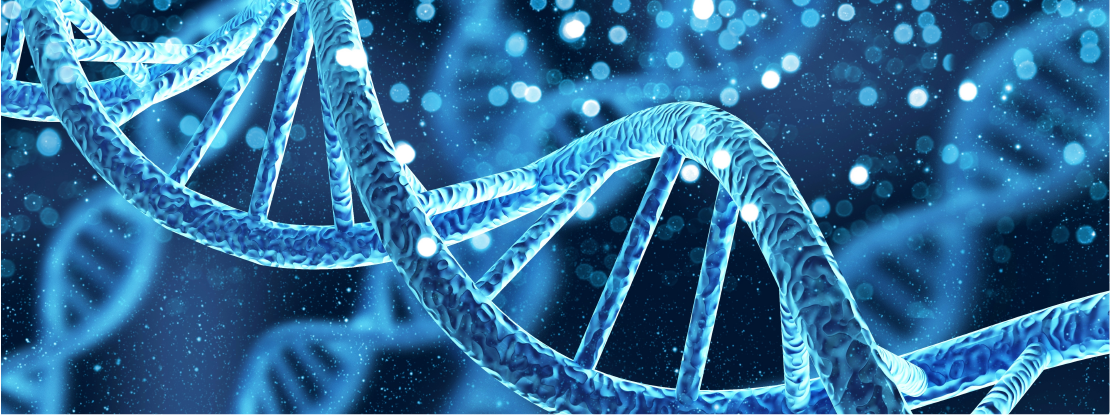For many people who develop Parkinson’s disease, some of the risk may be written in their genes. But so too may be answers that lead to new therapies. That’s why, to mark Parkinson’s Awareness Month, we’re taking a look at the role genes play in the disease and how they may help us one day slow or stop disease progression.
What are genes and why are they important?
Genes are discrete sections of DNA, the spiraling molecule that encompasses all of the information necessary to make a person. Much like individual recipes in a cookbook, each gene contains directions for building a specific protein, the body’s workforce. When the instructions in genes become scrambled, proteins either are assembled incorrectly, or too many or too few are made. In any of these cases, the proteins aren’t able to do their jobs properly, causing vital systems to break down.
How are genes involved in Parkinson’s?
More than 90% of Parkinson’s cases are sporadic, meaning that we don’t know exactly what gives rise to the disease. Growing evidence suggests that it is caused by a combination of factors that vary from person to person, including genetics, shifts in how our genes are regulated (a set of processes called epigenetics), environmental exposures and aging. These changes slowly accumulate until they reach a critical point, eventually tipping the scale toward Parkinson’s.
In less than 10% of cases, Parkinson’s can be directly linked to a change in specific genes that have been passed down through families.
Which genes impact Parkinson’s risk?
There are several genes that have been found to influence risk for Parkinson’s. Two of the main genes are:
LRRK2
LRRK2 mutations are found in an estimated 2% of all people with Parkinson’s and, in people with familial Parkinson’s, a single mutation to LRRK2 is found in 3%–7% of cases. These mutations lead to an overactivation of LRRK2. There also is evidence that LRRK2 may be overactive in people with Parkinson’s, even in the absence of a LRRK2 mutation. For this reason, several agents (called inhibitors) that reverse LRRK2 overactivation are being investigated as possible treatments for Parkinson’s disease.
GBA
GBA is one of the most frequently mutated genes across the Parkinson’s spectrum, in both sporadic and familial cases. Mutations in GBA cause it to lose its function. Loss of GBA function can lead to a disruption in cellular waste removal systems. When these systems break down, molecular debris can build up and damage cells.
How can studying genetics help people with Parkinson’s?
Understanding the causes of Parkinson’s give scientists important insights into how the disease occurs as well as potential opportunities to slow or stop its onset and progression. For example, potential therapies may include strategies that “fix” faulty genes, which could stave off the disease and give people more healthy years.
This year’s Grand Challenges in Parkinson’s Disease scientific symposium and Rallying to the Challenge meeting for people with Parkinson’s advocates and care partners will be held Oct. 6–7. For more information, please visit grandchallengesinpd.org.

